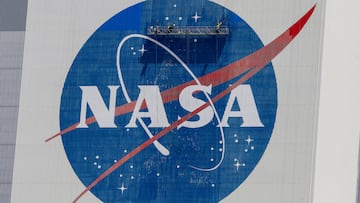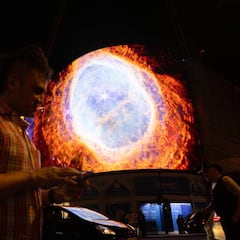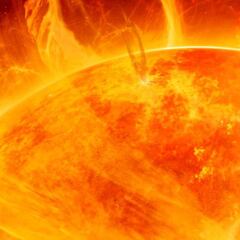Why is NASA conducting a new study on UFOs?
The agency has announced a project investigating reports of unidentified aerial phenomena (UAPs), although extra-terrestrial explanations are not expected.


NASA has commissioned a new study into what it terms as ‘unidentified aerial phenomena’ (UAPs), more commonly known as unidentified flying objects, or UFOs.
This fall the space agency will be conducting its first significant study of UAPs from a scientific perspective, looking at how to identify existing data sources and how best to collect information in the future. Despite their mythology, credible reports of unidentified objects in the night sky are very rare, so scientists have a limited pool of data to draw from.
NASA is commissioning a study team to start early fall to examine unidentified aerial phenomena (UAP) - observations in the sky that cannot be identified. This team will focus on identifying and collecting available data to scientifically understand UAPs. https://t.co/Tz0aTR6HYT pic.twitter.com/KaF9IyDUB7
— Thomas Zurbuchen (@Dr_ThomasZ) June 9, 2022
The agency explains that the study will be of interest for “both national security and air safety,” with a particular focus on ensuring the safety of aircrafts in future. The study may pique the interest of sci-fi fans, but NASA is at pains to point out that their research is expected to unearth some fairly mundane explanations to UAP sightings.
“There is no evidence UAPs are extra-terrestrial in origin,” the agency wrote in a statement.
“The study will focus on identifying available data, how best to collect future data, and how NASA can use that data to move the scientific understanding of UAPs forward.”
What will NASA’s UAP study involve?
The investigation team assembled by NASA will be led by astrophysicist David Spergel, president of the Simons Foundation in New York. Alongside him Daniel Evans will serve as the NASA official overseeing the broad study.
“Given the paucity of observations, our first task is simply to gather the most robust set of data that we can,” Spergel explains. “We will be identifying what data – from civilians, government, non-profits, companies – exists, what else we should try to collect, and how to best analyze it.”
Will new NASA study move the needle on UFO research? https://t.co/lYic6kb31y pic.twitter.com/URCKLp4rfh
— SPACE.com (@SPACEdotcom) July 18, 2022
The study represents a new approach from the agency as it seeks to understand what goes on in the sky and shed new light on old mysteries. As NASA celebrates the success of the James Webb Space Telescope giving a glimpse further into outer space, this study will focus on information gathering closer to home.
Related stories
“NASA believes that the tools of scientific discovery are powerful and apply here also,” said Thomas Zurbuchen, the associate administrator for science at NASA’s Washington headquarters.
“We have access to a broad range of observations of Earth from space – and that is the lifeblood of scientific inquiry. We have the tools and team who can help us improve our understanding of the unknown. That’s the very definition of what science is. That’s what we do,” he said.

